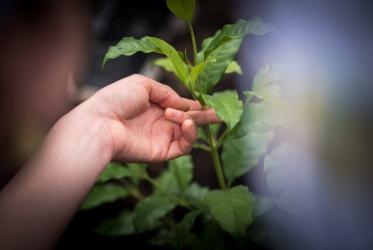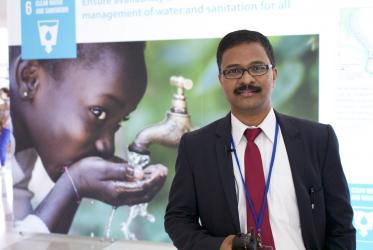Affichage de 1 - 20 de 109
Un colloque œcuménique de réflexion théologique sur l’écologie
18 Février 2021
Churches should use their voice on climate change
26 Février 2020
WCC expresses sadness, solidarity after Notre Dame fire
16 Avril 2019
Interfaith Rainforest Initiative expands
12 Février 2019










